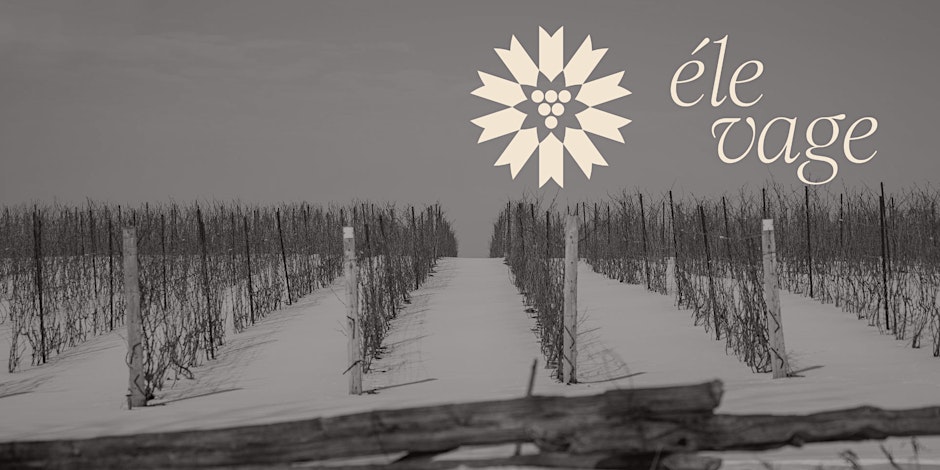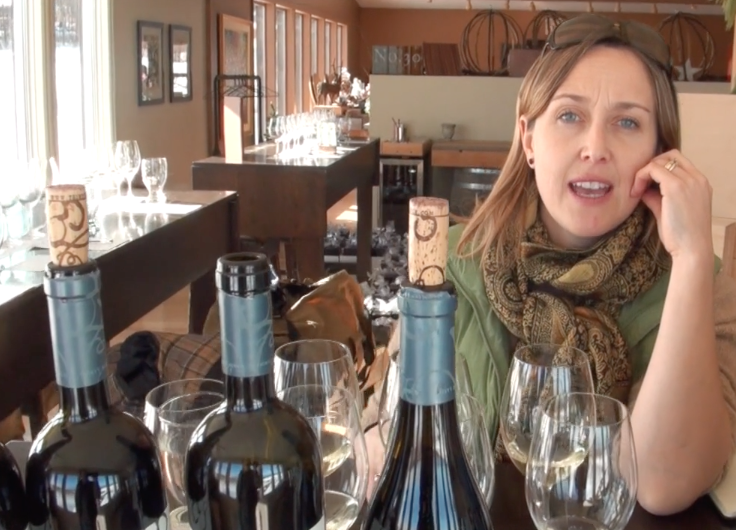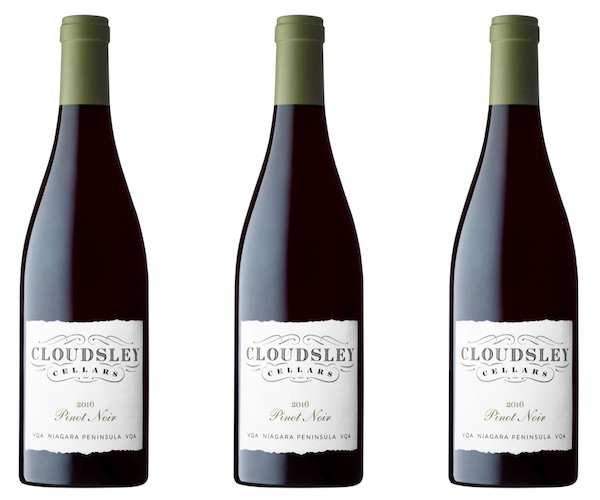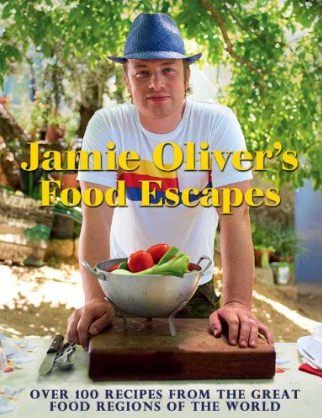Have you ever walked away from a winter wine festival impressed with what you tasted, but still, you could not shake the impact the people you met made during your time there? This immersion into people and lived experiences is the best way I can describe my time at Élevage, a Prince Edward County (PEC) Winter Wine Festival spanning two days in the month of February.
What on earth is Élevage, and what does it mean?
According to the PEC Wine Committee, “Élevage PEC Winter Wine Festival is a celebration of wine in all of its stages, through all seasons.”
In truth, the word élevage translates to ‘raising’ and refers to the progression of wine through to bottling. This maturation period is critical to the final stage of a wine’s characteristics. Many romantically liken the period of élevage to nurturing or ‘raising’ a child from adolescence to maturity. So yeah, élevage is a big thing and, quite frankly, a genius name for a wine festival.
The Élevage Winter Wine Festival Experience
I was lucky enough to be hosted by Karen and George from the Runaway Rooster, a quaint and ridiculously comfortable cottage, just east of the main house of the bed and breakfast structure on the property. High ceilings and big windows allow for a lot of natural light, which makes you feel an instinctive part of your natural surroundings.
Like one would expect whilst checking in to accommodations in a wine region, we were greeted to a bottle of Karen and George’s favourite sparkling rosé, Pixie, by Rosehall Run.
I always say you can tell a lot about a person based on the wine they throw their name behind, and given that the Pixie was a joyful burst of ripe and tart citrus on my palate, that could not help but lead you to think of all things sunshine, I figured the proprietors of the Runaway Rooster were pretty cool people, and they were. Between the gifted wine, the thoughtful small touches around the cottage, getting us in at a restaurant we could not book on our own, all the way through to delivering forgotten makeup cases in a snowstorm, there was no question about Karen and George’s genuine hospitable nature.
While the lodging was top-notch and comfortable enough to make you stay put, I had to venture out to partake in all things Élevage Winter Wine Festival.
We started the day at Stanners Vineyard, a must on my list.
The Stanners Vineyard is a family-owned and run wine operation that was founded in 2003. While their estate production includes Cabernet Franc, Chardonnay, and Pinot Gris, their original intent was to make premium Pinot Noir, a quest they’ve conquered.
As luck would have it, winemaker Colin Stanner came out to assist in the tasting room just as I was about to taste his 2021 Pinot Noir. Colin struck me as a ‘what you see is what you get’ kind of person with no pretence, which was uniquely welcoming.
A portion of the grapes for the Stanners 2021 Pinot Noir is from the section of their vineyard they affectionately refer to as the ‘Narrow Rows’, the remaining come from the Devil’s Wishbone vineyard, also in Prince Edward County.
The Stanners 2021 Pinot Noir was a great representation of County Pinot Noir with vibrant acidity, red crunchy berries, and crazy floral aromatics that were a tasteful combination of violet and rose.
Our time with Colin, however brief, showed a sense of duty of care for the vineyard, the winery, and the interaction with the public—all the things we know the Stanners brand to believe in.
My next stop was the Grange Winery, where walking into the tasting room felt like stepping into a lively chalet. Cosy couches for lounging and tasting on one side, and four and two tops for those looking to munch and taste wine, at once, on the other. Of course, the main attraction to the room was a nicely designed oval tasting bar in the middle, separating the loungers from the grazers.
Since 2021, the Grange has undergone a plethora of changes. Changes started with new ownership, relinquishing control from the mother-daughter duo, who began the winery on their family farm in 2001. In 2022, viticulturist Mike Peddlesden returned to care for the Grange vines, and the winemaking for the estate wines was put into the trusting hands of Jonas Newman, the winemaker at the Hinterland Winery.
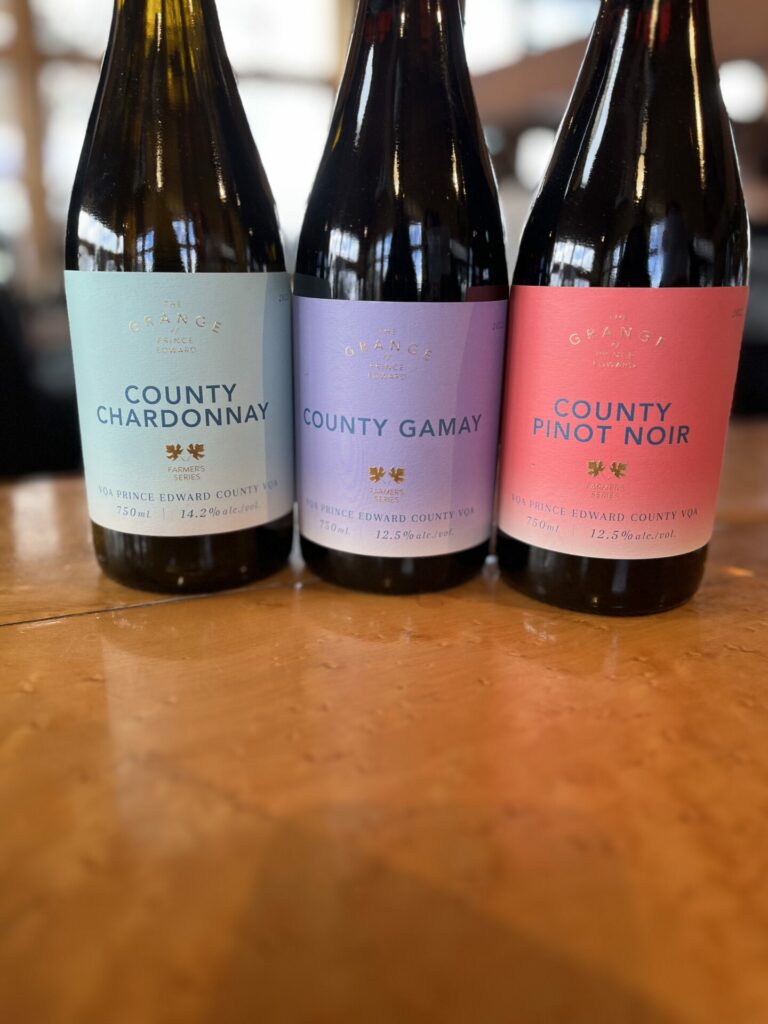
The tasting at Grange that day made it clear they had found the right blend of people to drive the brand’s next evolution. The Grange wines showed focus and a clear brand vision, showcasing what Prince Edward County terroir offers by making the most sound and approachable wines possible.
I tasted through six of the Grange wines on offer, but what stood out to me, and came home with me, were the 2022 County Chardonnay, County Pinot Noir, and County Gamay. With each of these wines, there was such precision on the palate, though leaving enough of a canvas to let your olfactory paint its own picture. The Chardonnay aromatics of creamed ripe citrus and mock orange flowers were beyond delightful and a touch nostalgic as the memory of an orange creamsicle came to mind. The palate sealed the deal, however; apple, pear, and County minerality, fine acidity, and a long and structured finish made me shout yes. Yes, to buying a bottle.
The Pinot Noir, too, showed a sense of place with an intriguing palate of cranberry and pomegranate, with a base of earthiness. Finally, the Gamay sang of morello cherries, raspberry and black pepper.
I am excited about what’s happening at the Grange. As one of the earlier wineries in the County and possessing one of the largest land holdings, there is so much left untapped here.
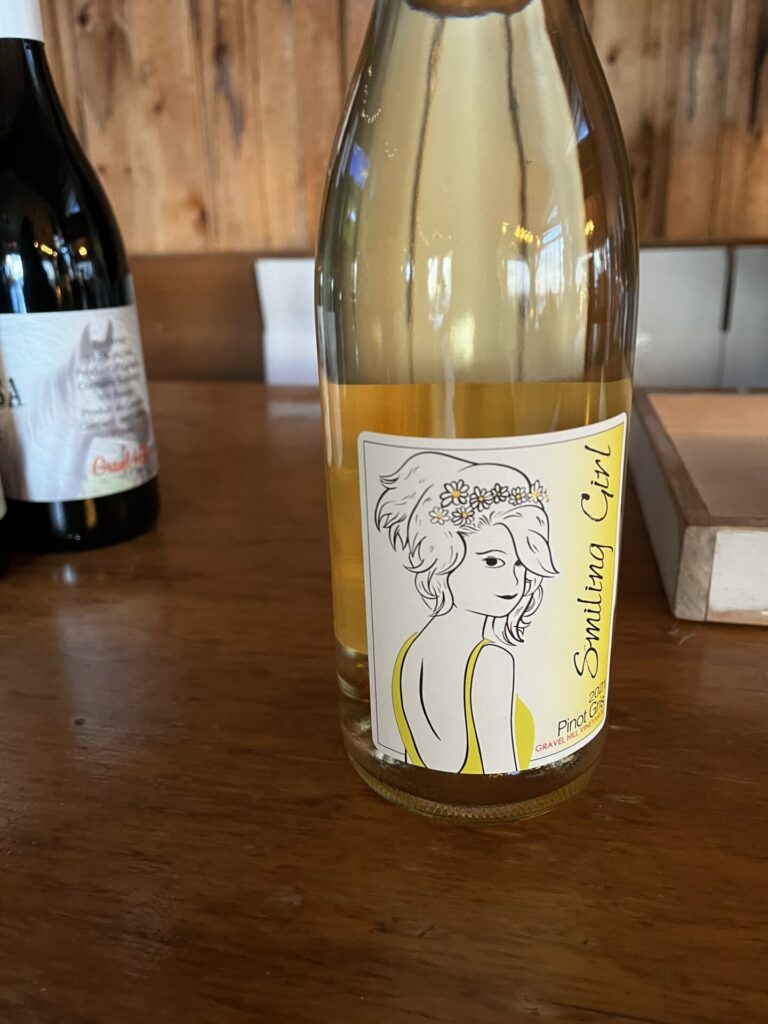
Just after my time at the Grange, we then met Chris Karja, one of the owners and the winemaker of Gravelhill Vineyards. What drew me to him was a curious label on one of his wines called ‘Smiling Girl’. When I asked Chris about the meaning behind the label, he shared a story with me. One day, in his office, mulling over the administrative tasks everyone loves to hate, his daughter walked in. He looked up from his desk and saw her standing there with a big smile. He then called out, “There’s my smiling girl,” and then, voila, the brand was born.
Gravelhill Vineyards is a small boutique family-run winery and one I admit I’ve never had the pleasure of tasting until that moment at Élevage. They planted their first vines in 2006 and now have six acres under vine where you’ll find both Vitis vinifera and hybrid grapes. Chris is a farmer through and through and boasts of his vineyard assistants, sheep, who help with weeding.
Day two of Élevage gave me a chance to geek out at Closson Chase in their vertical tasting session, led by winemaker Keith Tyers. Keith walked us through 2023 vintage wines out of tank and barrel, and our barrel exploration was a highlight.
The barrel-tasting exercise with the 2023 South Clos Chardonnay involved tasting the wine both out of a 228-litre barrel and then a 500-litre puncheon. With the 2023 Churchside Pinot Noir, the exercise involved tasting two samples of the wine, with the only difference being the yeast used. For a wine geek and certified sommelier, this was like heaven.
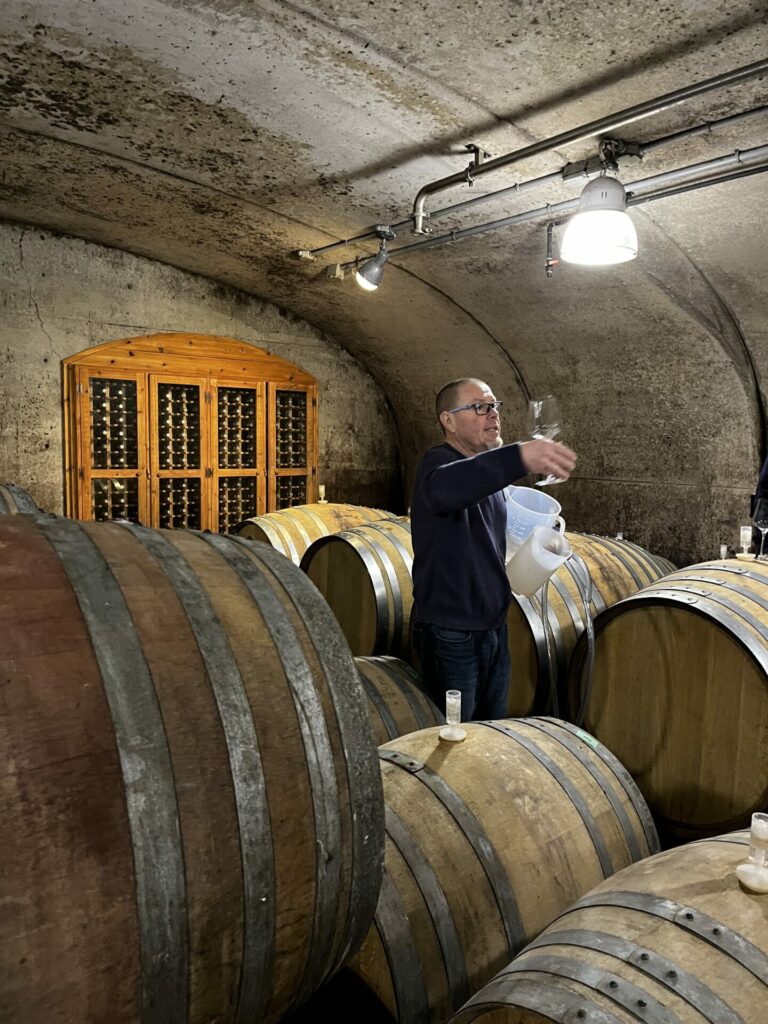
I kept Keith back after the tank and barrel tasting to talk more about the decisions made in the winery. Keith takes a hands-off approach like no other. He actually does not taste the wines as they go through élevage. I know, right. When I asked Keith about this, he said,
“I don’t really taste the barrels as they age. After malolactic conversion we’ll top and sulphite all the barrels and leave them. It’s their time to evolve, plus every time you open a barrel you introduce oxygen, both our friend and foe! So why bother? The wines are changing and will not be the same when I go to blend them anyway, so why put that stress on yourself. Let them be and taste them when élevage is complete — after all, that’s why I age it!”
From there, we headed to Lacey Estates to taste Kimball’s wines and say hello.
I first met Kimball in 2021 while doing a County wine run, and he made a lasting impression. When you hear people talk about someone who is open and welcoming and would do just about anything to help a neighbour, that’s Kimball.
We tasted through the Lacey lineup of wines and were blown away by their Dorland Red, a blend of Cabernet Sauvignon and Cabernet Franc, and their 2022 Baco Noir.
While I know Baco Noir is something you should drink fairly young, the Lacey 2022 Baco Noir had an incredible structure that made me pick it up, and take it home. I am curious to see how this will evolve over the next 18 months. Perhaps this Baco Noir will prove my ‘drink it young’ philosophy wrong.
We ended our time at Élevage with a delightful brunch at Karlo Estates, but before brunching, I sat down to taste 18 of their wines with Saxe Brickenden, Managing Partner at the winery.
Karlo Estates is a vibrant operation with 93 acres of land, of which 14 are under vine. The winery produces 24 wines in total, ensuring there is something, even two somethings, for every palate and preference. It is owned by Sherry Karlo and she and Saxe run most of the day-to-day at Karlo Estates. The last profile point I should mention is that all of the wines produced are vegan-friendly, and so too are the proprietors, a fun fact I learned when I touted, “I could use a burger”, but I digress.
The tasting at Karlo Estates was like going on a journey from fun patio times to intense six-course meals that are delicious but deep with flavours and complexity. There was an array of wine expressions that made the journey thought-provoking.
A special mention to the Karlo Estates 2021 Patio Reserve Rosé, 2021 Pinot Noir, and the 2020 Gemini (a blend of Cabernet Franc and Merlot). However, the two that stole the show were the 2021 Triumvirate and the 2021 Petite Pearl.
The 2021 Triumvirate, a Bordeaux blend of Merlot, Cabernet Franc and Cabernet Sauvignon, is only made in the years the winery does not make its flagship wine, Quintus.
What made the Triumvirate outstanding on the palate was that you could pick up the distinction and contribution each grape made to the finished product, but the wine was still wildly cohesive. It was like magic. Blue, red, and black fruit, balanced acidity, and round tannins in glass. This Bordeaux blend could easily pair with duck confit and/or conversation!
The 2021 Petite Pearl was a pleasant surprise to me as it is a hybrid grape.
I will be the first to tell you that wines made from hybrid grapes are not what I usually drink. I’ve had some not-so-fun experiences in the past and some good ones too, but because my experiences have been hit or miss, I choose not to drink in this space. So, when Saxe poured the Petite Pearl into my glass, I had no clue what to expect.
Petite Pearl is a grape that can withstand temperatures as cold as -35 degrees Celsius and is highly resistant to disease. In an area like Prince Edward County, where vines go through a ‘hilling-up’ process during the winter months, you can see how Petite Pearl would be at home here.
For those of you who have not tried the Karlo Estates 2021 Petite Pearl, the best way to describe it is to say that on the palate, it reminded me of a cross between Pinot Noir and Cabernet Franc. You get the spices and acidity you expect from cool-climate Pinot Noir with the cherry, current, and peppery notes you expect from Cabernet Franc. The Petite Pearl tasting was so fantastic that I took a bottle home.
This Petite Pearl experience opened my eyes to the role that hybrid grapes could play in viticulture as we encounter climatic differences that morph yearly.
I did ask Saxe about using hybrid grapes and their marketability to consumers. Saxe’s philosophy regarding hybrids was that “if you treat the hybrid with respect, it will produce some beautiful wines.”
And That’s a Wrap
2024 Élevage was a magnificent time of connecting with people, revisiting the nervy styles of Prince Edward County wines that I love, and a new awareness of wineries, stories, and, yes, hybrids.
In getting to know the producers, grape growers, sommeliers, Food and Beverage Directors, and hoteliers that I met that weekend, I could not help but walk away from each exchange in a state of ‘élevage’… Okay, that was lame, but honestly, I felt a little better and perhaps wiser after each encounter, and that is my driver for making sure I make it out to Élevage again next year.
Before I close, let’s address the elephant in the room. The bed and breakfast I stayed at is called ‘Runaway Rooster’, which is very different from the country-quaint names you normally see. I just could not help but ask Karen and George about the story behind the name.
“Seven years ago, we ran away from the crowded congestion of the city barnyard to the fresh air and free-range spaces of The County to open a bed & breakfast. The first morning after our move, we heard a rooster crowing. That’s how we got our name … we ran away … heard a rooster crowing and the rest is PEC B&B history!”
Yep, I will stay with Karen and George again the next time I am in the County. They’re pretty awesome!
Cheers to a successful Élevage, and see you at the next one!
Summary of Wines Tasted
NV Rosehall Run “Pixie Sparkling Rosé” Prince Edward County VQA
![]()
2021 Stanners Vineyard Pinot Noir Prince Edward County VQA
![]()
2022 Grange Winery “County Chardonnay” Prince Edward County VQA
![]()
2022 Grange Winery “County Pinot Noir” Prince Edward County VQA
![]()
2022 Grange Winery “County Gamay” Prince Edward County VQA
![]()
2021 Gravelhill Winery “Smiling Girl” Prince Edward County VQA
![]()
2020 Lacey Estates “Dorland Red” Prince Edward County VQA
![]()
2020 Lacey Estates Baco Noir Prince Edward County VQA
![]()
2021 Karlo Estates “Patio Reserve Rosé” Prince Edward County VQA
![]()
2021 Karlo Estates Pinot Noir Prince Edward County VQA
![]()
2020 Karlo Estates “Gemini” Prince Edward County VQA
![]()
2021 Karlo Estates “Triumvirate” Prince Edward County VQA
![]()
2021 Karlo Estates “Petite Pearl” Prince Edward County VQA
![]()

